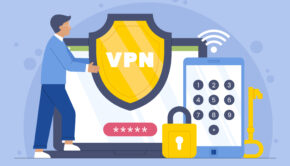6 Precautions You Should Take To Protect Your Vital Records
Your vital records are amongst the most important documents you should safeguard. These are the documents that identify you as a citizen and provide proof of your identity, such as birth certificates, driver’s licenses, passports, and social security cards. They are essential documents that you need to access for a range of important life events, including getting married and applying for jobs.
Losing these documents or having them fall into the wrong hands can lead to identity theft, credit card fraud, bank account theft, and other serious problems. That’s why you need to put measures in place to protect your vital records.
Here are six precautions you should take to safeguard your critical documents.
Keep your documents in a safe place
The first step is to ensure you keep your documents in a safe place. You should invest in a fireproof safe that is secure and kept in a hidden area. Additionally, having a safe that has a fingerprint lock can be worthwhile.
The vital records that you should store in the safe should include your passport, social security card, and birth certificate. This will ensure that your documents will be protected if there is a fire, theft, or any other emergency.
Make copies
In addition to keeping your original copies safe, it is essential to make copies of all your vital records and store them in a separate location. It’s a good idea to keep copies with a trusted friend or family member or in a different location, such as a safe deposit box. This becomes crucial in case you lose the originals or they get damaged.
You could also make online copies, but you will need to make sure that these are backed up in a secure way. For instance, you’ll want to ensure your online copies are protected with strong passwords, two-factor authentication, and encryption.
Be mindful of who has access
Access to your documents should only be granted to those that need them. Ideally, you should be the only person who knows where they are, but in the case of an emergency, it’s helpful to have a least one or two other people that know where they are.
You should primarily consider giving access to close relatives or friends. However, you must take precautions since you never know if your close ones might accidentally share your documents’ location.
Avoid sending documents over email
If you need to send your documents for any reason, it is best to avoid doing so via email. Email can often be susceptible to hacking, and if an unauthorized person gets access to your emails, they could have access to all the vital information in them.
It’s better to use physical mail or a secure file-sharing service instead. If you have to send documents via email, encrypt the files with a password before sending them.
Shred anything related to your documents
When disposing of any documents or forms that are related to your vital records, it is imperative that you shred them first. This includes any credit card offers, bills, and bank statements.
Shredding will help prevent identity thieves from using the information to commit fraud and other illegal activities. You should use a cross-cut or micro-cut shredder to ensure that the documents cannot be put back together.
Be prepared for the worst
Sometimes, no matter how many precautions we have taken, unforeseen events can happen, and things can turn for the worst, and you lose all of your documents.
In such cases, you need to keep all your documents in place and record what you have. You need a detailed record of all the documents you had, where they were kept, and a plan of action to follow in the event of a disaster such as a flood or an earthquake.
Conclusion
Safeguarding your vital records is essential for protection against identity theft and other fraud-related issues. Taking the right precautions can be the difference between preserving your documents safely or having them fall into the wrong hands.
It’s important to remember that it is your responsibility to protect them at all times, so be sure to take the necessary steps to ensure maximum protection.
















